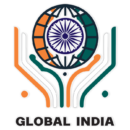Accessing Medical Facilities and Health Insurance
Saudi Arabia offers a robust healthcare system divided into public and private sectors. Understanding how to access these services is crucial for expatriates.
1. Public Healthcare:
- Public hospitals and clinics provide free or low-cost services but are primarily for Saudi citizens.
- Expatriates may use public facilities in emergencies, but private healthcare is more accessible for routine treatments.
2. Private Healthcare:
The private sector offers high-quality services with shorter waiting times.
- Many private hospitals in cities like Riyadh, Jeddah, and Dammam meet international standards.
3. Health Insurance:
It is mandatory for employers to provide health insurance to expatriates and their dependents.
Insurance policies cover routine check-ups, hospitalization, and emergency care.
- Popular insurance providers include Bupa Arabia, Tawuniya, and AXA.
4. Tips for Accessing Healthcare:
Always carry your iqama and health insurance card when visiting medical facilities.
Confirm your insurance provider’s network to avoid out-of-pocket expenses.
- Use apps like Seha (for public healthcare) and hospital-specific platforms for appointments.
Emergency Medical Services and Contacts
Saudi Arabia’s emergency medical services are efficient and accessible. Knowing the right contacts and steps can make all the difference in emergencies.
- Ambulance: 997
- Police: 999
- Fire Department: 998
- Traffic Accidents: 993
- General Emergency (Unified Number): 911 (available in urban regions)
- In cases of severe injury, accidents, or life-threatening illnesses.
- Provide clear information about the location and nature of the emergency.
- Pharmacies are widely available and operate 24/7 in major cities.
- Over-the-counter medications can be purchased without prescriptions, but controlled substances require a doctor’s prescription.
Public Services in Saudi Arabia
Public services in Saudi Arabia are increasingly digitized, making it easier for expatriates to manage their day-to-day needs.
- Absher: The primary platform for managing iqama renewals, visa extensions, and other government services.
- Saudi e-Government Portal: Centralized access to all public services (https://www.my.gov.sa/).
Municipal offices manage utilities, waste disposal, and local infrastructure.
Service issues can be reported through city-specific hotline numbers or online portals.
- Public buses, taxis, and ride-hailing services like Uber and Careem are available for urban mobility.
The Riyadh Metro and Haramain High-Speed Railway provide convenient options for specific regions.
Healthcare and Public Safety Tips
Public services in Saudi Arabia are increasingly digitized, making it easier for expatriates to manage their day-to-day needs.
- Keep a basic first-aid kit at home.
- Familiarize yourself with the nearest hospitals and pharmacies.
Heat-related illnesses are common during the summer. Stay hydrated and limit outdoor activities during peak heat hours.
- Seasonal flu and allergies may occur due to weather changes or dust storms.
- Saudi Arabia has established efficient vaccination programs accessible through public and private hospitals.
Use the Tawakkalna app to track vaccination status, testing locations, and health updates.
Links to Healthcare and Public Resources
Expatriates should leverage these platforms for healthcare and public services:
- Ministry of Health: https://www.moh.gov.sa/
- Cooperative Health Insurance Council: https://www.cchi.gov.sa/
- Emergency Services Directory: https://www.saudiembassy.net/
- Absher: https://www.absher.sa/
Integration from Global India Website
Incorporating insights from Global India – Daily Life in Saudi Arabia:
- Public services are increasingly digitized, with platforms like Absher making processes seamless.
- Expatriates can rely on private healthcare for most needs while keeping public hospitals as a backup for emergencies.
- Emergency numbers and quick access to healthcare remain critical for day-to-day safety.
